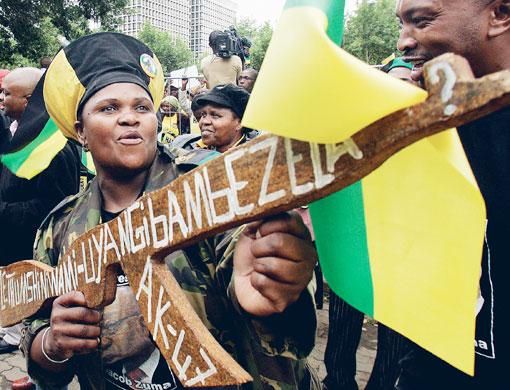Johannesburg: The move to include South Africans living abroad in the upcoming national election has been widely applauded by opposition parties.
The ruling African National Congress (ANC), however, has expressed concern over the potential delay the move could cause in the country's election timetable.
"The ANC's position is simple, we will uphold any court decision and we agree that all South Africans who have registered have a right to vote. However, we are concerned over the postponing of the date of the election," said ANC spokeswoman Jessie Duarte.
The reactions followed a Pretoria High Court ruling on Monday directing that South Africans abroad be allowed to vote.
According to the judgment, the country's Electoral Act "limited" the casting of votes to people temporarily living abroad.
The ruling was referred to the Constitutional Court for confirmation.
Currently, special voting arrangements are limited to certain groups including government employees and people on holiday and business trips.
Electoral experts cautioned that arranging to include citizens living abroad in the election would pose a "logistical nightmare" for the Independent Electoral Commission, which runs the country's polls, as it would need to arrange for staff abroad besides setting up polling stations globally.
The petition that resulted in the high court ruling was brought by the Freedom Front Plus, a minority opposition party, on behalf of a teacher living in the United Kingdom.
Party leader Pieter Mulder pointed out that all South Africans abroad had been eligible to vote in 1994 during the country's first democratic election but had since been excluded from the electoral process. He believed changes to the electoral act were being brought for political reasons.
Mulder said the ruling ANC was fearful it would lose its two-thirds majority if citizens who opted to live outside the country's borders were given a say in the ballot.
Another opposition party, the Independent Democrats, disagreed with "politicising" the argument for citizens living abroad to be allowed to participate in the election.
"Politicisation of this issue is unfortunate - to exclude people from voting because they live in another country is against their constitutional rights. We are not interested in who those living abroad are going to vote for but rather the fact that they can vote because it is there constitutional right," he said.
Newly-formed opposition party, the Congress of the People, in reality a splinter group of the ANC, welcomed the high court ruling seeing in it an opportunity for around five per cent of the electorate to participate in the polls.
"Over 1 million South Africans are working and living abroad, who account for over five per cent of the total electorate eligible to vote in the 2009 elections," the party said.
"By observing how many citizens registered to vote, it is imperative that every South African has the opportunity to make themselves heard and shape the future of our country."
Constitutional law expert and professor at the University of South Africa, Shadrack Gutto said the Constitutional Court faced a tough decision as it mulled over the ruling and whether to confirm it.
"Political participation is central to constitutional provisions. But the application comes very late and close to the election.
"It will create a real test for the Constitutional Court in the sense that elections cannot be delayed, the terms of office of the current government is prescribed and anything which will delay the process is something that the Constitutional Court will frown upon," he said.
An estimated 1.5 million South Africans are living abroad. Analysts say the ruling party faces its first credible threat in the upcoming polls due to the formation of the Congress of the People.
The writer is a journalist based in South Africa.













